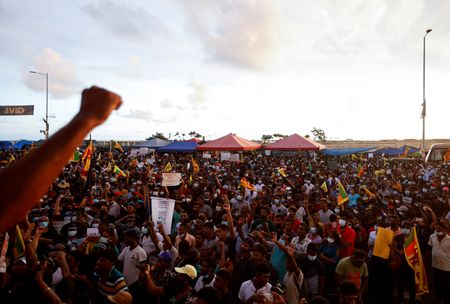
IMF urges Sri Lanka to tighten monetary policy, raise tax to address debt woes

(Reuters) – Sri Lanka must tighten monetary policy, raise tax and adopt flexible exchange rates to address its debt crisis, a senior International Monetary Fund (IMF) official said on Tuesday.
The country of 22 million people has requested loans from the IMF as it struggles to pay for imports amid crushing debt and a sharp drop in foreign exchange reserves that has fueled soaring inflation.
“We’ve had very good, fruitful, technical discussions on preparations for the negotiations with authorities over the past weekend and couple of days before,” said Anne-Marie Gulde-Wolf, acting director of the IMF’s Asia and Pacific Department, speaking at an online news conference.
Sri Lankan Finance Minister Ali Sabry was in Washington last week to talk to the IMF, the World Bank, India and others about financing help for his country, which has suspended payments on portions of its $51 billion in external debt.
“The requirement for fund lending will be progress toward debt sustainability,” Gulde-Wolf said, calling on Sri Lanka for measures to increase tax revenues to address critical spending needs.
“Monetary policy has to be tightened to keep inflation in check,” she said. “We see a need for flexible exchange rates.”
Gulde-Wolf did not reply to a question on the total value for any IMF package, nor the estimated timing of a conclusion to the negotiations with Sri Lanka.

















POST COMMENTS (0)